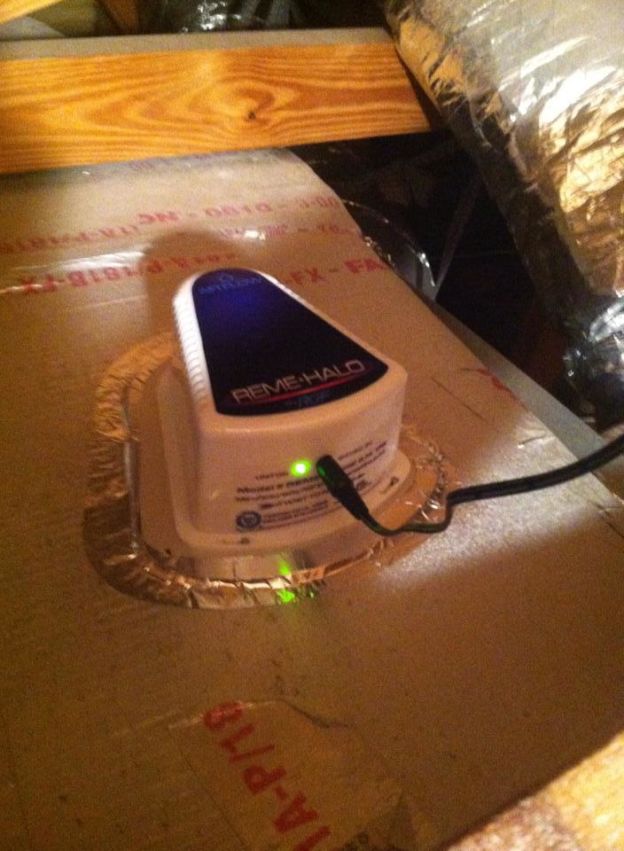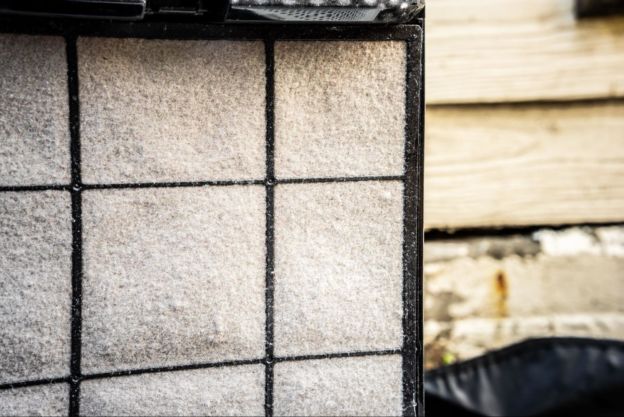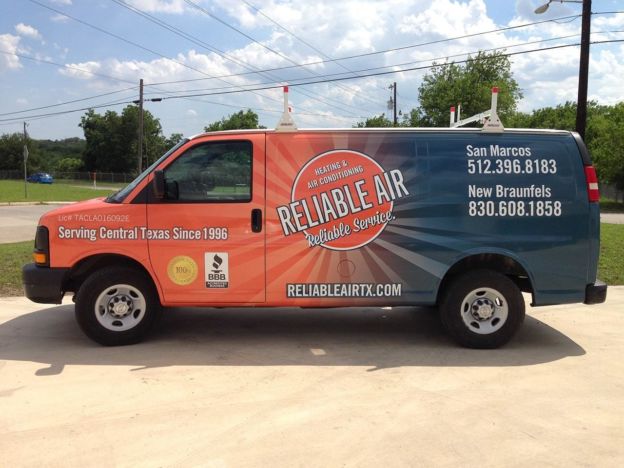Choosing between an air purifier or air scrubber depends on the type of particles you want to remove. For example, an electrostatic air purifier is likely enough to reduce pet dander. Still, if you want a more comprehensive cleaning, you might want to opt for a higher-rated purifier or a scrubber.
This blog answers all the basic questions about systems that improve your air quality, including:
- What is an air purifier?
- What is an air scrubber?
- What are the pros and cons?
- Which one should you pick?
Need More Information About Air Purifiers?
Get the best indoor air quality around when you work with Reliable Air. Our experienced home comfort experts can explain your options for filtering indoor air and give you an honest and free installation estimate. Call us at (512) 580-8837 to schedule same-day service today in San Marcos and the surrounding areas.
What Is an Air Purifier?

An air purifier is a device that removes airborne contaminants from inside your home. This system typically works by passing air through a filter system after air is heated or cooled by your HVAC unit.
Heating and air conditioning units come with a filter system to protect the unit, but installing additional filtration with an air purifier can further reduce the number of particles in your air.
Air purifiers come in several styles and may incorporate other systems to help remove even more contaminants. Whole-home air purifier systems are usually installed side-by-side with your HVAC system to clean conditioned air before it enters your vents. Essentially, these systems add a more powerful filter with a higher MERV rating to remove extra particulates.
Experts recommend a MERV rating of 13 or better, though some systems add filtration at the HEPA level, which provides a 99.97% cleaning rate for particles as small as 3 microns. HEPA is the gold air filtration standard, which is why it is often used in hospitals or around sensitive equipment.
For home use, a MERV filter rated at 13 is often compatible with your existing HVAC unit, though you should have your furnace inspected before installing one. If a filter is too large for your unit, you may need to have modifications made to accommodate it.
Portable air purifiers focus on cleaning the air in a single room. These units are often measured by their clean air delivery rate (CADR). For a 600-square-foot room, you'll likely want a unit with a 390 minimum CADR, according to the EPA.
What is an Air Scrubber?
Like an air purifier, an air scrubber removes contaminants from the air inside your home. However, these units also tackle particles that land on surfaces, making them an effective defense against dust and dirt.
An air scrubber also benefits from using multiple levels of filtration, pulling more types of particles out of the air. Most air purifiers are ineffective against odors and gasses, but air scrubbers can leave your home free of the smell of tobacco use or pet odors.
Air scrubbers are typically a whole-home solution. These units are added to the intake and outflow of your HVAC system, removing everything from fungal infections to viruses and bacteria. Plus, allergens and pollen stay outside your home. For businesses or renters that want to have a higher level of clean air without installing an air purification system in a landlord’s HVAC equipment, there are portable air scrubbers as well. (Reliable Air installs both whole-home and portable air scrubbers!)
With EPA estimates that indoor air can be 2 to 5 times more polluted than outdoor air, air scrubbers can be a big boost to improving air quality throughout your home.
What Are Their Pros and Cons?

Both air purifiers and air scrubbers improve your air quality. Either option can be combined with UV lights to add germicidal capabilities. Ultimately, there is no downside to improving your air quality, but air scrubbers are generally considered the more effective option. The pros and cons are fairly evident for both.
Pros:
- Cleaner air. Single-pass filtration systems like air purifiers and air scrubbers help remove some of the particles in the air that affect quality.
- Allergen-free environment. Pet owners or those with seasonal allergies may enjoy a significant quality of life improvement by avoiding indoor allergens.
- Better health. Air purifiers and scrubbers can both have systems in place to reduce the spread of airborne diseases.
- Reduced cleaning requirements. Air scrubbers, in particular, may help with routine home maintenance since these units can help reduce the amount of dust that settles on surfaces.
Cons:
- Price. Both air purifiers and air scrubbers can come with a hefty price tag. Though scrubbers are the more expensive of the two options, both can be pricey depending on the setup needed to clean the air in your home.
Which One Should You Pick?
What you want to accomplish determines which type of air-cleaning device you should install. If you have a room with odors you want to remove or create a clean space for a family member with allergies, an air purifier may be enough to provide the air quality needed. But, if you want a set-it-and-forget-it system that always works to clean the air throughout your entire home, an air scrubber might be the better option.
Contact Reliable Air For Efficient Indoor Air Quality Improvements

Got questions about the differences between air purifiers and air scrubbers? Call us at (512) 580-8837. Our highly trained professionals have decades of experience delivering quality service Texans can trust. We know all about ragweed season and when to change your filters for the best results. We also know how to install any air cleaning system right the first time.
Give us a call today to get a free estimate and our honest and professional recommendations for your indoor air quality improvements!

